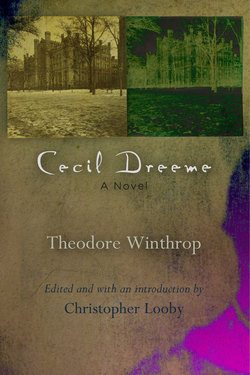Читать книгу Cecil Dreeme - Theodore Winthrop - Страница 3
На сайте Литреса книга снята с продажи.
ОглавлениеQ19: THE QUEER AMERICAN NINETEENTH CENTURY
Christopher Looby, Series Editor
Queer is a good nineteenth-century American word, appearing almost everywhere in the literature of the time. And, as often as not, the nineteenth-century use of the word seems to anticipate the sexually specific meanings it would later accrue. Sometimes queer could mean simply odd or strange or droll. But at other times it carried within itself a hint of its semantic future, as when Artemus Ward, ostensibly visiting a settlement of “Free Lovers” in Ohio, calls them “some queer people,” or when the narrator of Constance Fenimore Woolson’s “Felipa” refers to the eponymous child, who wears masculine clothing, as “a queer little thing,” or when Herman Melville, writing of the master-at-arms Claggart in Billy Budd, tells us that young Billy, sensitive to Claggart’s attentively yearning yet malicious behavior toward him, “thought the master-at-arms acted in a manner rather queer at times.” Q19: The Queer American Nineteenth Century makes available again a set of literary texts from the long American nineteenth century in which the queer appears in all its complex range of meanings. From George Lippard’s The Midnight Queen: “‘Strange!’ cried one. ‘Odd!’ another. ‘Queer!’ a third.”
